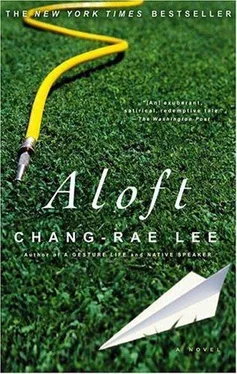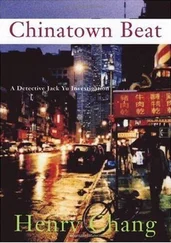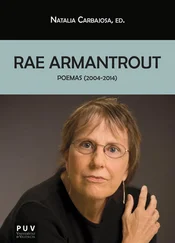Maybe Pop really is in trouble.
Maybe he really is lying face down in a roadside ditch.
But if he is, I have a feeling he's only doing so because he's hiding from state troopers patrolling the roads for him, which they're presently doing (this definitely not the standard operat-ing procedure for missing persons but courtesy of Rita's highly placed sheriff friend), Pop ducking at each spray of headlights so he might enjoy a few more hours on the lam. And instead of feeling sorry for himself as I expected he would (as I no doubt would be feeling for myself), at least he's goddamn doing something about it, even if it is completely stupid and dangerous; at least he's taken hold of the moment angling away from him and typically wrenched it back his way.
I used to hear stories from my uncles about him when they were young, how they'd get into some serious rumbles where they lived up in Harlem against marauding gangs of micks and kikes and niggers, everybody using whatever was at hand, broomsticks and chains and tops of garbage cans as shields. My uncle Toe said it was like a fucking Wop Coliseum in the alleyways up there around 135th Street, these barbaric knock-down brawls where it seemed somebody was definitely going to get killed but the worst thing that ever happened was when Big Anthony Colacello slipped on a pile of horseshit as he was about to clock some poor Irish kid and hit his head on the curb and didn't wake up for two whole days. When he did he was exactly the same except he'd lost his sense of smell, and they'd play pranks on him like spreading limburger cheese on the back of his collar as they were on their way to skipping school.
Apparently Pop was the best fighter of their gang because he didn't mind getting hurt and had no fear of anyone. He would just lower his head (thus becoming Hank the Tank) and take whatever punishment he had to as he pushed in and waited for the guy to tire before counterattacking with a viciousness that surprised the crew every time. Pop I guess was a lot angrier then inside and out for the usual reasons of privation and poverty and general mistreatment by family members and people in the street and at school and by the authorities, which these days you'd call racism and discrimination but then was known as the breaks, how it was, your miserable fucking life.
No doubt these days they'd have identified him and his brothers and cousins and the rest of their street-clinging crew as "at risk" youth and placed them in special programs with teams of sociologists and educators and therapists evaluating their intelligence and home life and probably diagnosing them with all kinds of learning and emotional disorders and prescribing medicines and skills-building regimens, finally buoying them up with grand balloons of self-esteem that they might float high above the rank fog of their scrounging dago circumstance, to land somewhere in the sweet-smelling prosperous beyond.
Pop certainly did, as did almost every last one of his generation's Battaglias, with the exception of his cousin Frankie, who died of a freak heart attack at nineteen, and then another named Valerie, who from the age of eleven smoked like an iron smelter and came down with lung (and liver and brain) cancer a month after her nuptials and was in the grave before she could even conceive a child. For if you took an accounting of all who proceed us, our alive and semi-alive relations from Forest Hills to Thousand Oaks to Amelia Island and to everywhere else they've rooted themselves with a vengeance, you'd have some kind of portfolio of golden twentieth-century self-made American living, all those spic-and-span houses and Gunite pools and porcelain- and crystal-filled curio cabinets and full-mouth braces for the kids and the double wall ovens set on timers to bring the roast rosemary chicken and casserole of sweet-sausage lasagna to just the right crisp on top as Dad pulled the white Lincoln up the driveway, their contribution to our Great Society being the straight full trickle-down to my generation of Battaglias and Battles and Battapaglias and the rest of us with the sweetheart deal of a Set-It-and-Forget-It existence. Like everybody halfway decent and useful I of course recognize that one's character should rightly derive from privation, crucibles, pains in the ass, and so I guess my only semi-rhetorical question is from what else does it come, if there's always been a steady wind at your back, a full buffet as your table, and the always cosseted parachuted airbagged feeling of your bubbleness, which can never brook a real fear?
Pop's pop was one of those stumpy, big-handed, gray-haired fellas in coveralls you still spot every once in a while shimmying up on a neighbor's roof to repoint the top of the fireplace chimney, because guys like Pop and then me didn't want to learn the skill and they could never retire because there was no one else who knew how to do the job and they could never not take the call. In fact maybe Pop and I have more in common than I know, because really he had little interest in building garden walls and cladding Manhattan townhouses in limestone or doing anything like what Nonno was doing, whom I know he loved like a God but considered not a little backward and igno-rant and lucky that he had him as a son. Growing up, Pop was smart enough to see how everybody was moving to the suburbs into their own houses with big yards and patios and pools and paved driveways, and he knew that the owners would be working too hard in their regular jobs to come home on the weekends and want to take care of it all. So against Nonno's wishes he moved the business out here to the suburbs, mostly dropping the bricklaying part (only stick-built, clapboarded houses out here) and shifting the focus to landscaping and yard care, which for a good many years was a veritable gold mine for the Battles, because he kept his early clients and moved along with them to bigger and bigger places right up until they died.
Pop was pretty magnificent then, this when I was a kid tagging along in the summers and he was in his prime (Bobby was just an infant). He'd stand there at the start of the day on the bed of his truck, hands spread atop the roof of the cab, calling out the jobs and saying who'd be working on them and with what foreman, exhorting the guys to do the job right (because if you do it right you don't have to remember to be honest) and then giving out a few loose bucks to those who were making the grade, cracking jokes the whole time and praising everybody and being the studly captain of the crew. When everybody had their marching orders he'd slap the cab and say, "All right, fellas, let's roll 'em out." The trucks would start up in a sweet dieselly cloud and he'd lead them out of the yard in a column like he was fucking Field Marshal Rommel. On the job I'd watch as he glad-handed the customers and was tough on them, too, and I'd have to say that whatever I know about common commerce and people I know from him, how he'd convince some guy to line his pool with real tiles instead of the cheaper rubber liner for the sake of standards and posterity, appealing to what pushed the guy out here in the first place, which was an idea about the destiny of the good American life and how each of us had a place in it, guiding it along. If George Guggenheimer had been his neighbor he would have been his best customer; Pop would have had him put in two koi ponds instead of one, with a waterfall in between, and then maybe an entire au-thentic Japanese garden, with a Zen sand pit and a manicured bamboo "fence" and a couple of those baby red maples that look so delicate and weepy, never for a second allowing George to entertain the idea of doing anything himself but feeding the fish (and maybe not even that), and definitely going over there after the lottery win and slapping some sense into him about not being such a pathetic, fearful, neurotic twitch of a man.
Читать дальше











